So on our second day we decided to get wet. Our focus was going to be micro organisms, mostly molluscs, so we were going to be doing brushing and sieving and sediment sampling in addition to general hand collecting. We headed out to a mud/silt flat with occasional coral bommies. Here is John looking for a suitable rock to flip and brush.
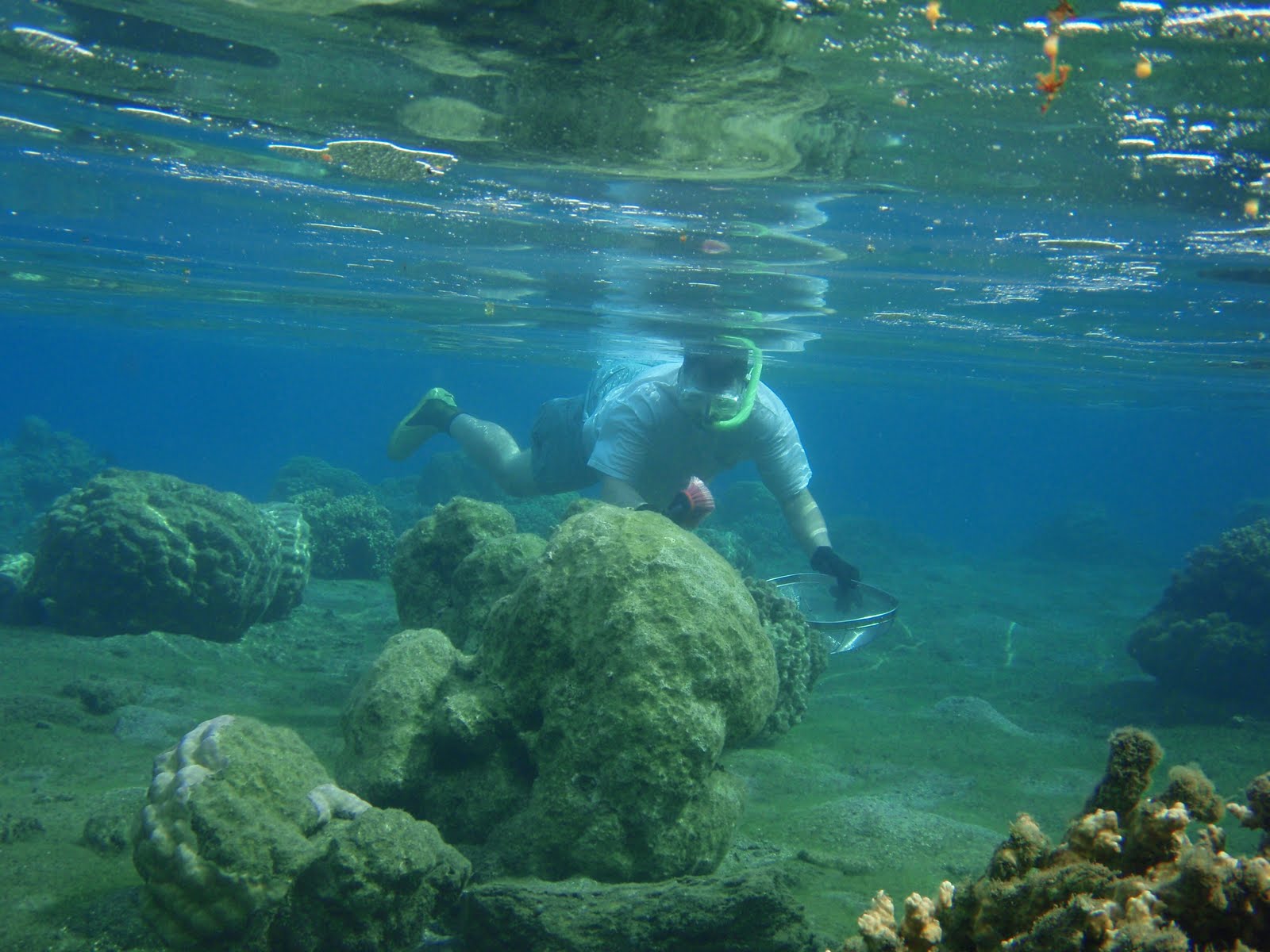
So, maybe I’ll do some sand fanning, see if I can’t find any…holy crap! Look at the size of that sea cucumber!
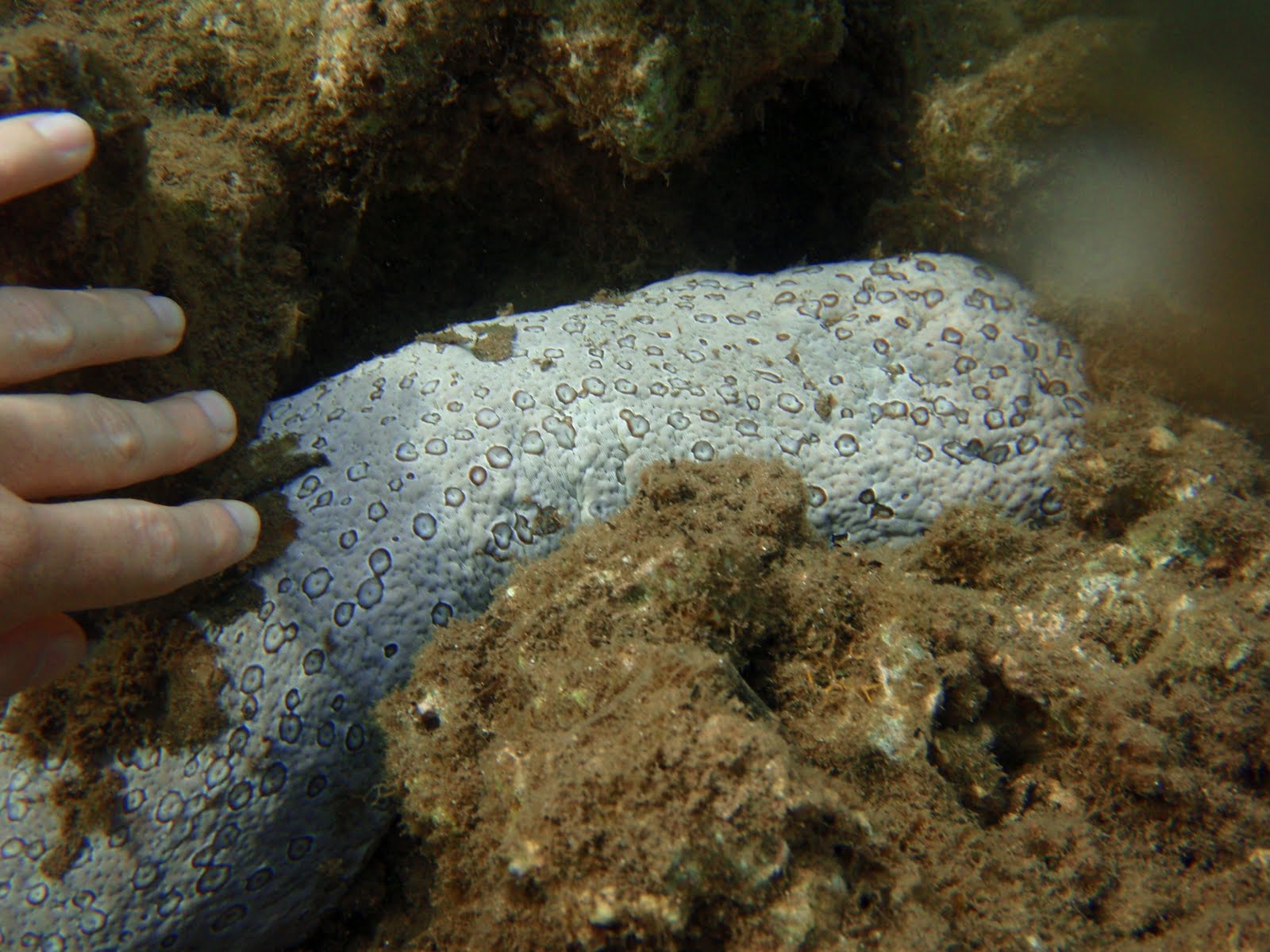
Wow, these guys are thick on the ground, I can see why Gustav likes it here. Ok, so, sand fanning. Maybe I can find some small snails or shrimp. Hey, is that an urchin!
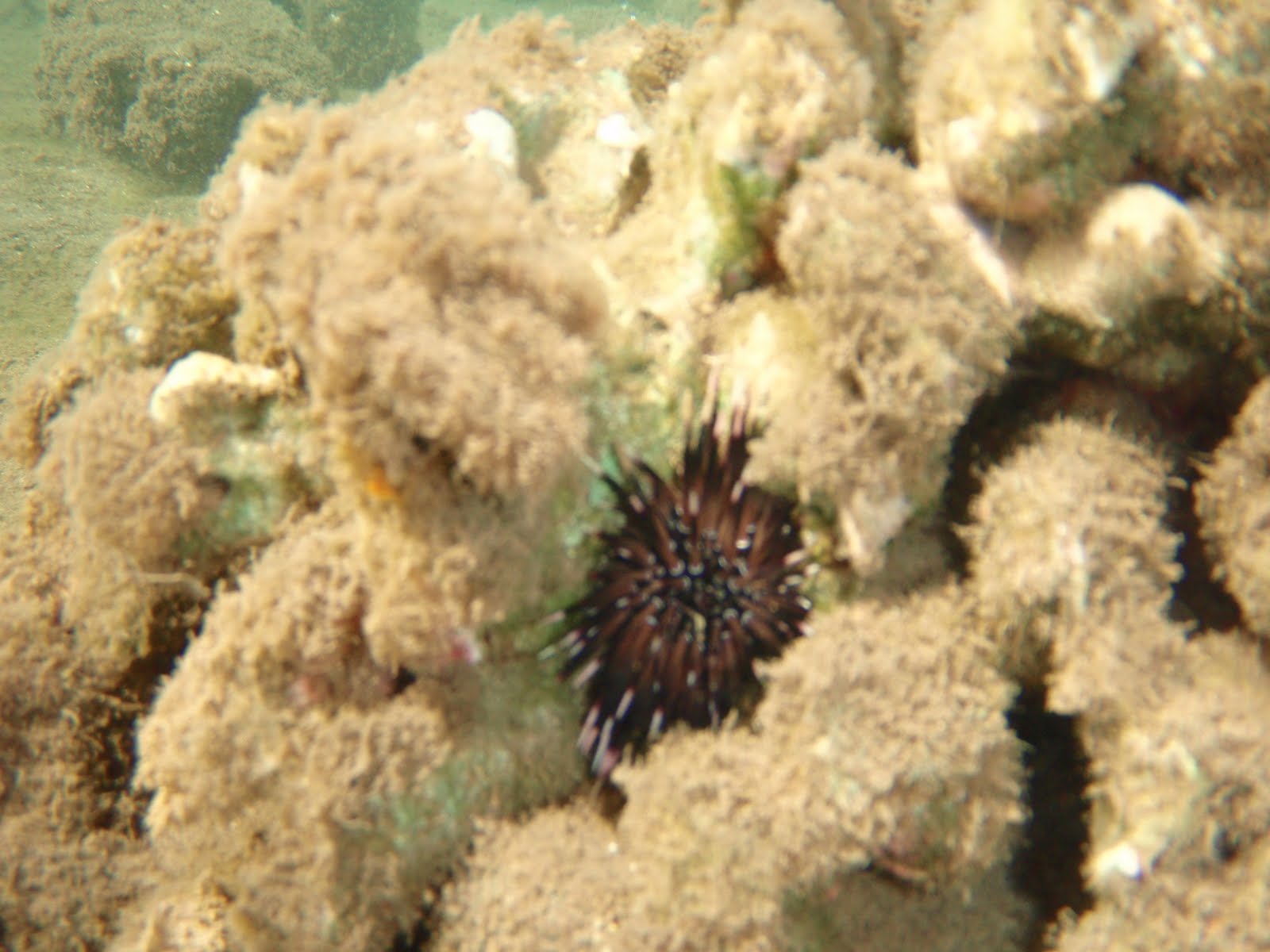
It is an urchin! Those are pretty big too. They are crowded into every crevice in the coral. I can’t believe how much coral is on this mud flat, and so close to shore. Looks like the fish like it too.
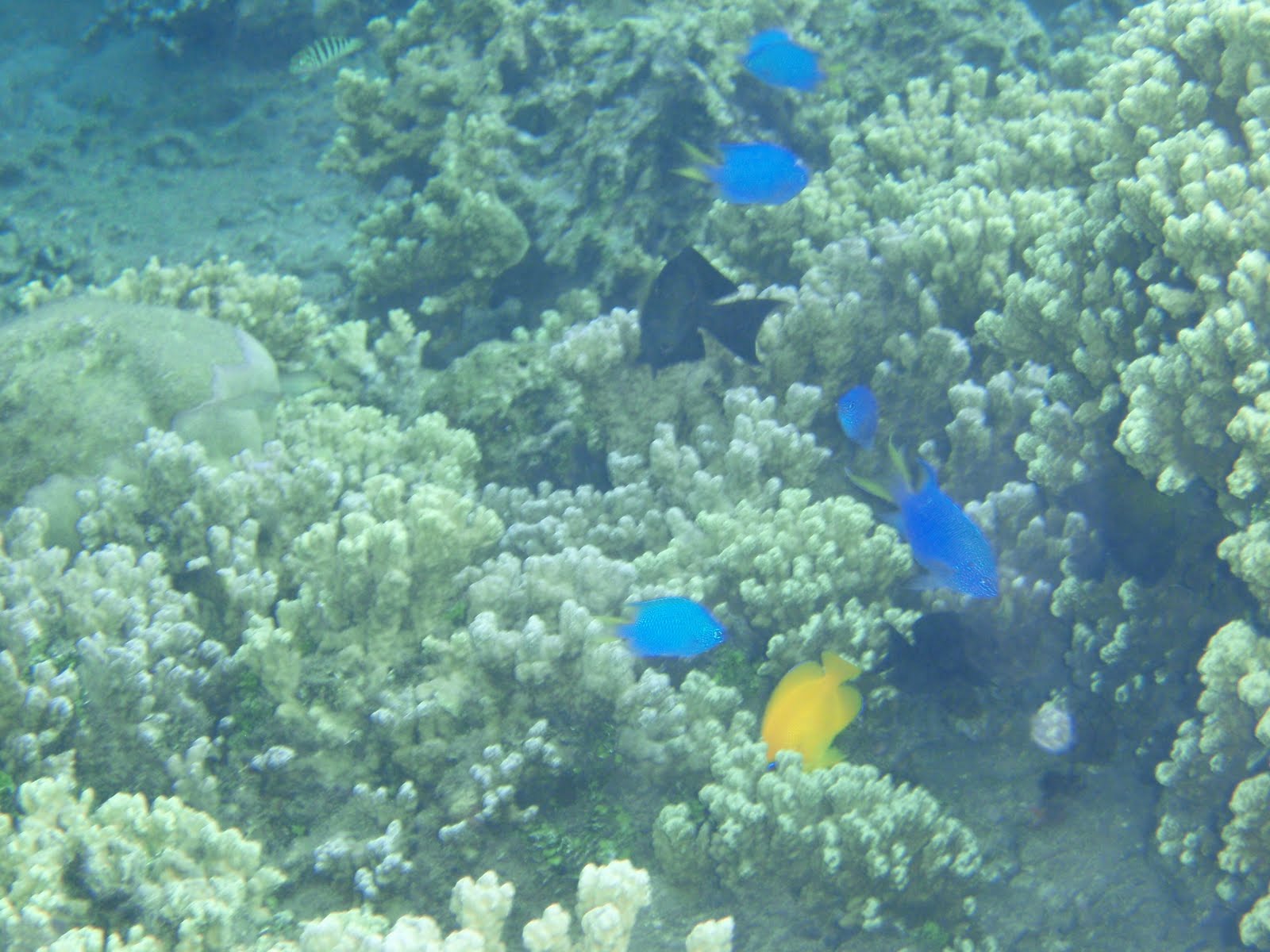
The colors are amazing! There are even picasso triggers (not pictured), my favorite! I wonder if this algae growth is hiding any…christmas tree worms!
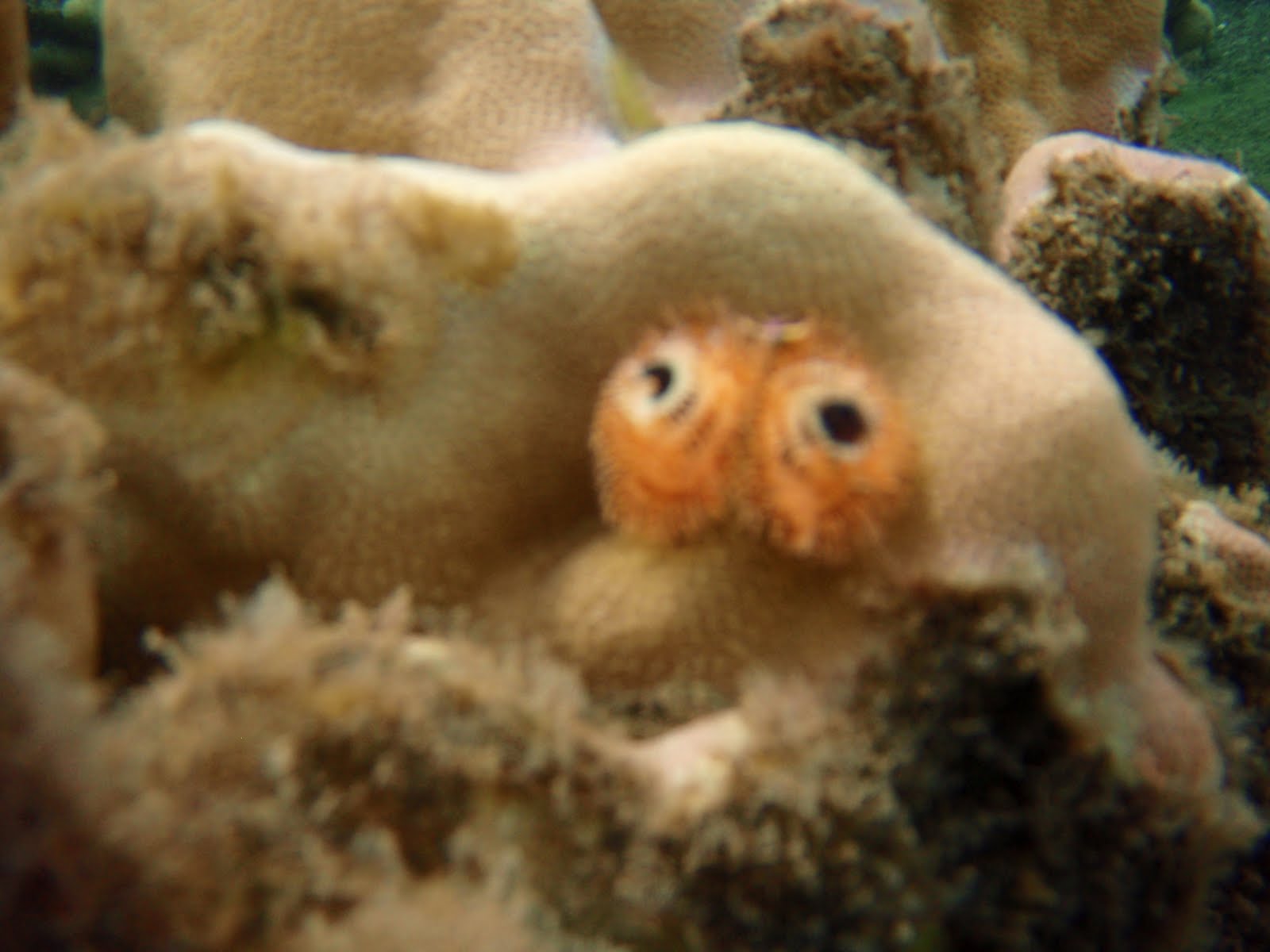
I mean micro molluscs. I wonder if that algae is hiding any micro molluscs. Hmmm, so far nothing. Except a baby giant clam!
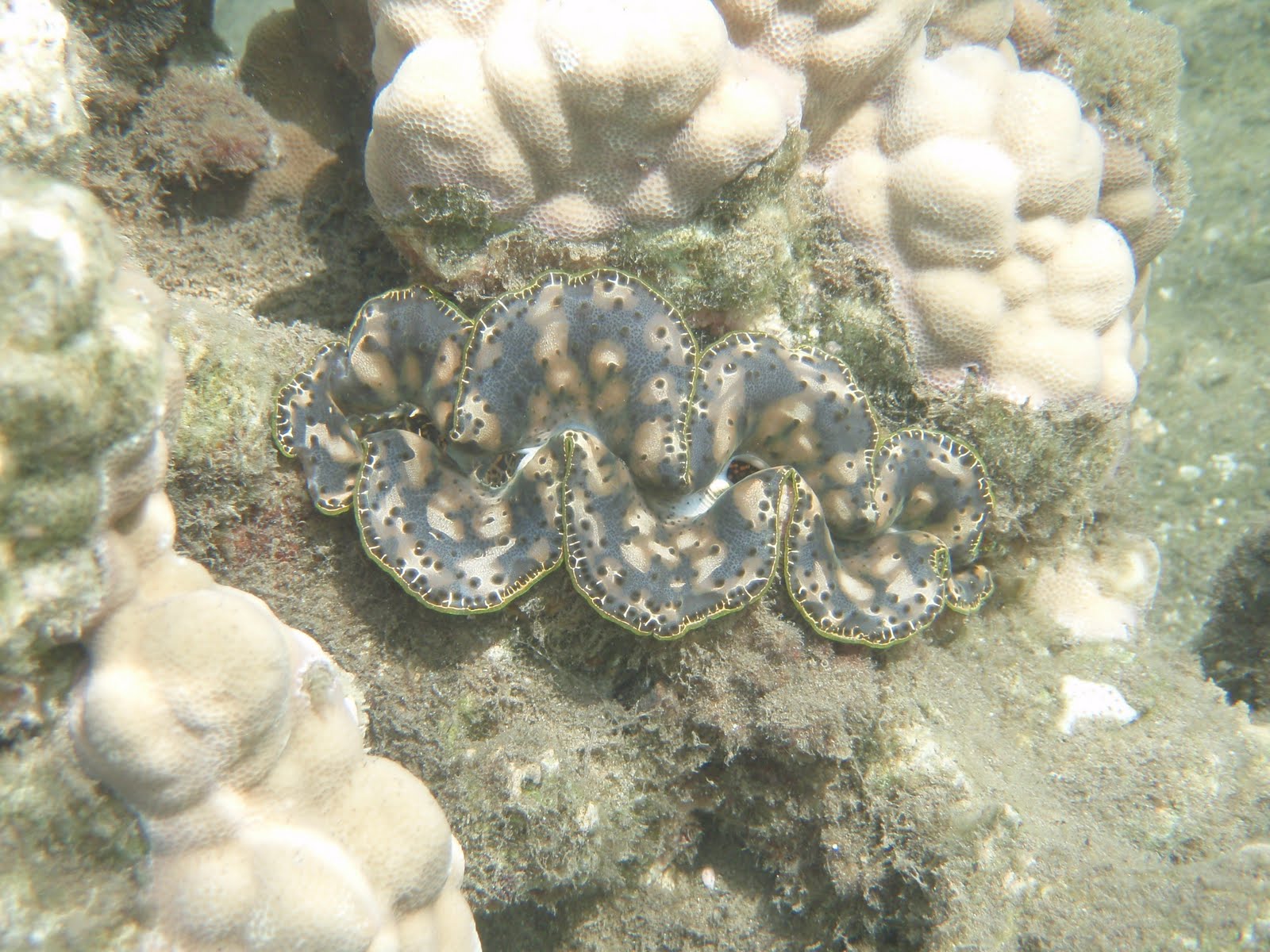
Is that a blue one!
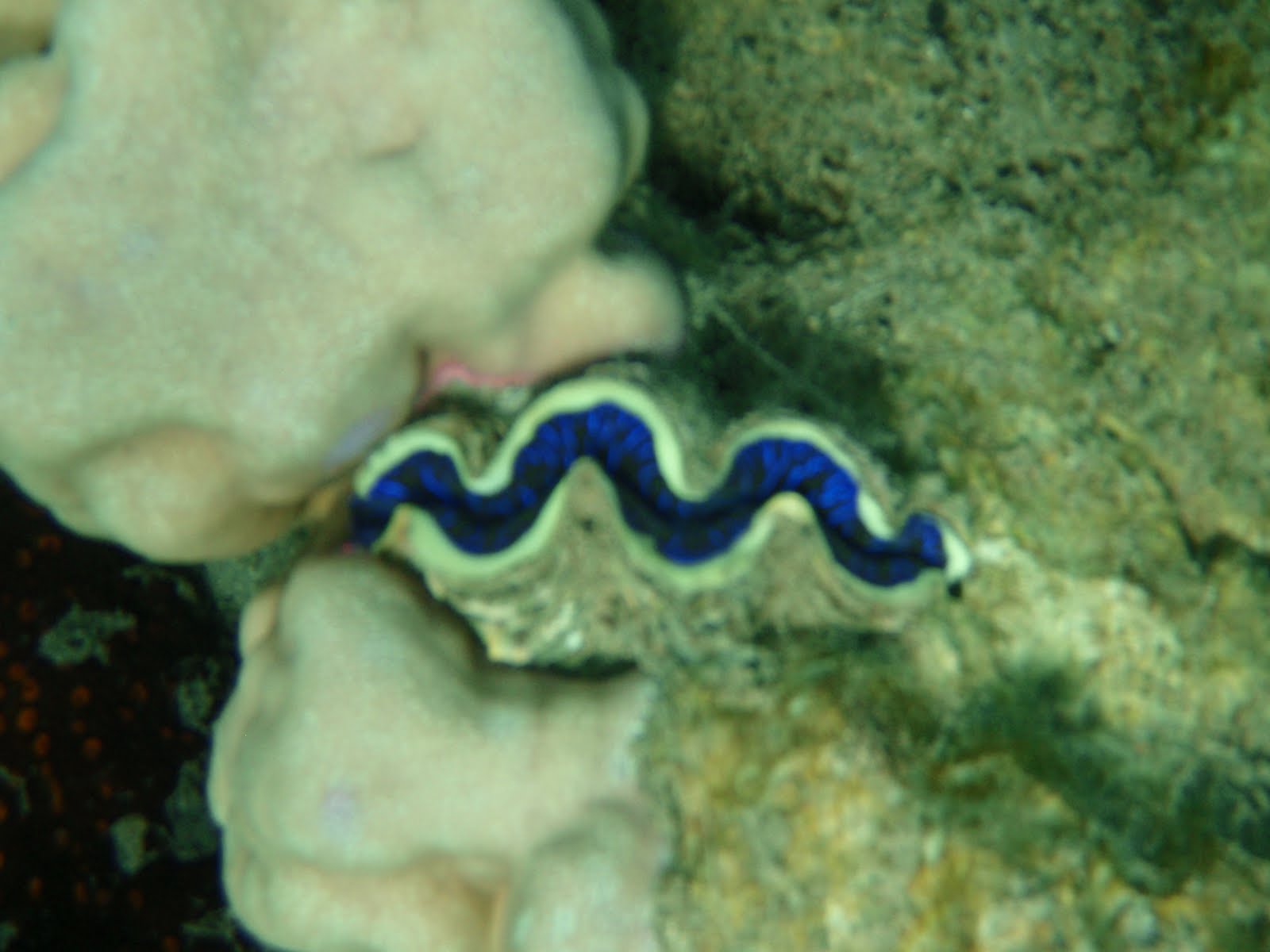
This is pretty much how my snorkel went. I eventually began scouring the rocks along the jetty, and was excited to find several micro molluscs! Which turned out to be hermit crabs. So, there’s a lot to see in Moorea and my first snorkel was full of new and exciting stuff. Next time I vow to do better. Maybe I’ll help John with the brushing.
🙂 Mandy
Wow! Beautiful!
Is the blue clam (what causes the colouration? Different colours, I suppose? Does it indicate toxicity?) the baby giant clam? What are the dimensions?
I enjoy your photos.
Bob
Both the blue (last picture) and the green (previous picture) are giant clams. They were both about the size of my hand. I think that what causes the different colors of these clams is not completely understood, but that it is assumed to be related to the photosymbionts in their mantle.
-Mandy